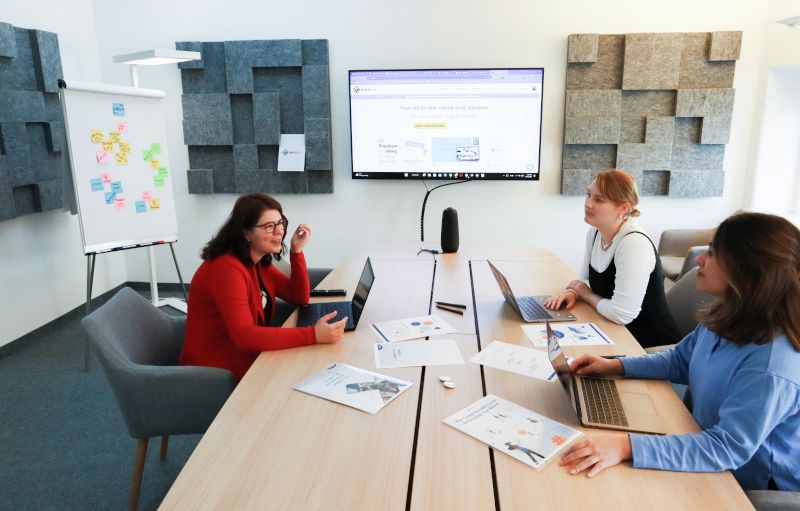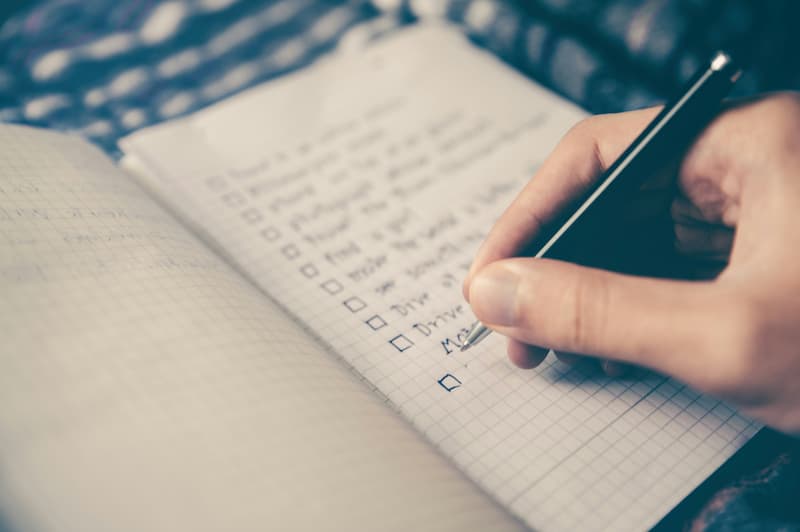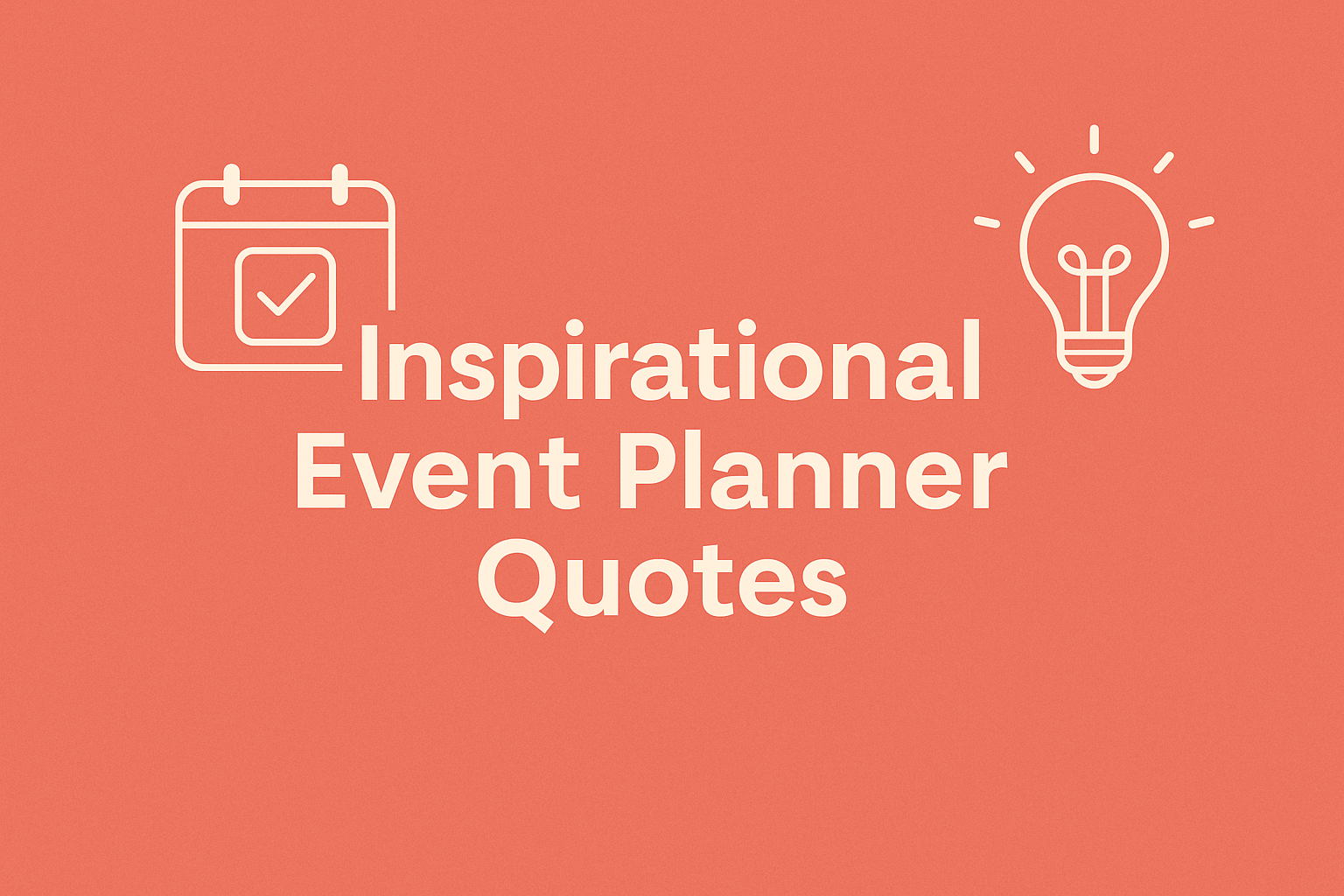Planning a successful event calls for you to juggle various logistics successfully. From selecting a venue with enough parking to making sure the goody bags for the guests arrive on time, planning event planning logistics requires thinking through all the different details, and having a system in place in case something goes wrong.
Fortunately, strategies like an event logistics checklist can simplify this process. If you are new to navigating how to plan logistics for an event, we will break down what you need to know to be successful.
Understanding Event Logistics

Event logistics are all the details you need to plan and organize an event from start to finish. In event management, logistics provide an outline of the tasks that need to be managed before, during, and after an event to ensure that everything is ready and you have what you need.
Event logistics can typically be broken down into three main checklists:
- Pre-event logistics
- During-event logistics
- Post-event logistics
To improve the success of your event, you do not want to neglect any of these components. Here is what you want to include in your preparations.
Key Elements of Event Logistics
As you start to design your event and consider all the details you want to include, it helps to break down the event into different components. By looking at the event according to these different categories, it becomes easier to organize your thoughts and brainstorm all the information you need to include. Here are some of the most common ones you will want to include in the various planning segments.
Venue selection and management
Selecting your venue is your critical first step. To choose the right one, you will want to consider all the following features:
- How accessible is the location for your participants?
- What types of parking accommodations and/or public transportation does the venue offer? If people park elsewhere, how will they access the venue?
- Do you plan on offering full meals, and can the venue accommodate this food storage and preparation?
- How well can this venue accommodate the needs and activities of your event? Consider how the space is divided up, the flow from one area to the next, acoustics, and anything else that might impact your unique occasion.
Transportation and accommodation arrangements
Next, you will want to think about the transportation options you will have available for attendees. Some common questions you will want to include in your event logistics checklist will include:
- What types of transportation will you need to accommodate your attendees and your featured speakers? Will you offer any VIP features, like flights? Will you have shuttles running to help people get from the airport to the hotel?
- Will accommodations be a part of the event? If not, will you recommend some locations for people coming in from out of town? How will people get from the accommodations to the event?
- Will you plan any special extras for people traveling to the event? For example, sometimes event organizers will have networking opportunities or organize dinners for people who traveled after the event.
Equipment and technology needs

As you start planning event logistics, you want to consider the equipment and technology that will play an essential role in your event. Consider these different points to help you think through all the various details:
- Will the venue include the audio/visual equipment you need, or will you need to supply your own?
- What types of equipment do your presenters need for their talks and workshops? Do not stop at microphones—consider features like screens, projectors, video equipment, or better lighting.
- What types of technology will you use in your registration process? How will you use an event app to connect your attendees? Will you have kiosks available for registration or checking in?
Catering and hospitality services
The last major category you will want to consider for event planning logistics is your catering and hospitality services. In this category, you want to consider:
- What types of food will you offer? What meals will be included?
- Will you organize meals in a sit-down or buffet style?
- Will you need waitstaff for meals? What types of food preparation and storage facilities does the venue offer?
- Does the event include any attendee swag?
- Will you need a bartender? Do you have all the proper licensing in place for alcohol service?
Creating an Effective Event Logistics Checklist
Now that you have started to explore the many areas you need to organize and manage to plan a successful event, you can see the value of an event logistics checklist.
When you start planning your event, brainstorm with your team all the details that need to be managed for it to move forward successfully. Use the questions above to organize your information.
As you list these critical tasks on your checklist, you can start to organize them based on when particular tasks need to be carried out. We recommend that you categorize your list based on organizational jobs you will finish before the event, the day of the event, and after the event.
Essential Items for Your Event Logistics Checklist
To help you start to group your tasks based on their timing, here are some suggestions to get you started.
Pre-event planning tasks
Tackle before the event begins. It will include jobs such as:
- Planning for the venue and food and doing a walk-through of your location
- Building and launching your landing page, app, and any other registration options
- Verifying your payment options
- Designing and launching your email and social media campaigns
- Determining equipment needed for the event
- Determining your accommodation and transportation options
- Testing equipment
Day-of-event logistics
When the big day arrives, you will need to review key logistical tasks to ensure everything is ready.
- Finalize the equipment setup in all the rooms
- Perform a final check of the equipment
- Manage the event schedule
- Welcome guests
- If any parts of the event are broadcast virtually, managing the equipment and virtual sessions
Post-event wrap-up and evaluation
Even once your event finishes, you must stay on top of some necessary logistics. To plan future events, it helps to know how this event went and how your attendees perceived it. Therefore, your post-event wrap up should include tasks such as:
- Sending out post-event surveys
- Writing and sending email sequences to keep the conversation going
- Compiling and analyzing feedback and data from the event as a team
How to Plan Logistics for an Event

Planning all the details and logistics for an event can feel overwhelming, but there are strategies you can use to keep your team organized and ensure that all the important details are included in your checklist.
You want to run through these steps early in the process. Early planning and coordination can ensure that everyone is on the same page and can help prevent oversights or miscommunication later on.
Step 1. Identify your goals and the value you want to bring. Knowing what you want to achieve for your business and the value you will offer your attendees will help you plan the rest of the event.
Step 2. Brainstorm how your target audience and goals will impact your logistics. For example, your crowd size and target demographics will impact your venue choice, transportation offerings, and your menu selection.
Step 3. Use a calendar and checklist for logistics management. As you write out your list of tasks, determine when each task needs to be completed for a successful event. Remember to schedule a little cushion time to account for potential delays.
Step 4. Assign tasks to specific people. To avoid overlaps or missed tasks, make sure each task has an owner.
Step 5. Check in regularly with the team to discuss progress, brainstorm solutions to problems, and make sure that everyone is on the same page about the planning progression.
Step 6. Do walk thoughts of the venue and with the vendors to know how everything will operate during the event.
Step 7. Establish a communication plan for the event itself. This includes knowing how your team will stay in touch, who will manage different day-of logistical tasks, and what your process will be for emergencies or other problems that arise.
Step 8. Create a plan for evaluating the event and keeping in touch with participants once it is over.
Developing a Logistics Strategy
Overarching all of these different components of your logistics planning needs to be your logistics strategy. This strategy is formed by your event goals and objectives. The clearer you understand what you want to achieve with your event, the easier it will be to direct your logistics planning appropriately.
Armed with our purpose, you next need to determine your budget and how you will allocate resources. Your goals should tell you where you want to prioritize your spending so that you can start letting the members of your team know how much is available in their different areas of planning.
Finally, pull your strategy together with a timeline and deadline for your different logistical tasks. This keeps everyone on schedule and gives you a clear picture of how your event planning should look at the different stages of preparation.
Coordination and Communication
Across your entire planning stage, you need to have a highly effective communication team. As you can see from reviewing all the different components of your event planning logistics checklist, you have a number of different moving parts. Your team will need to coordinate with a variety of vendors and with each other effectively to make sure everyone operates cohesively.
Therefore, one of your first tasks as a team is setting your communication techniques and requirements. For example, you might have a weekly meeting six months before the event and switch to a daily check-in for the final four weeks of planning. You might also choose an event management platform to help you track your different tasks and their progress toward completion.
In addition to your communication plans as a team, know how you will navigate your vendors and stakeholders. Consider who will sign off on contracts and how you will manage the planning and execution phases of the event with everyone. Know how often stakeholders need updates and the information that matters the most during these updates.
Executing Event Planning Logistics
As you prepare to execute your event, adequate preparations will ensure everything goes as smoothly as possible. Here are our pieces of advice for a seamless execution:
- Before you step foot in the door, your team should have an established plan for communication, including who runs the point for different aspects of the event.
- Do a run-through of your event at your venue in the hours before the event.
- Do final tests on your microphones, video equipment, WiFi,and any other technology.
- Know that hiccups will happen, and have a person or small team designated to put out these small ‘fires’ so that everything stays on track.
On-Site Management
When the event begins, your team needs to be onsite and ready to keep everything running. Common issues that arise on the day of an event include excessive crowds and confusion. You might also have technology malfunctions. Having a point person to manage these different problems can go a long way. You can also avoid many of them by ensuring the space has been equipped with ample signage to direct both attendees and vendors, as well as backup equipment.
Once the event finishes, stay on site until every vendor has finished cleaning up and departing. This will prepare you to help with logistics until the last possible moment. Make sure your team members are easily reachable as well so that any questions that arise can be quickly answered.
Post-Event Logistics
Once you have finished your event, have a plan in place to wrap up the last details. You want to know what your attendees thought of the event and where you can improve. Gathering feedback will help you improve your event logistics in the future.
Ask attendees directly what they thought of the event. You might send out surveys, schedule calls, or ask people to rate different aspects of the event through an app. Collect the information you gather in one place so you can consolidate it and use it when discussing the event with the rest of the team.
Tips for Successful Event Logistics Management

Improving your event logistics comes down to a few critical areas.
- Focus on your planning and communication. With so many components, breakdowns in communication can quickly spiral.
- Make sure the team works together. Even if people are planning vastly different event components, such as speaker schedules and accommodations, provide regular opportunities to share progress and give feedback so everyone can see the big picture.
- Have a plan in place to manage problems. Something will happen. It might be small, such as a refrigerator that breaks an hour before the caterer arrives with the food, or it might be big, such as a keynote speaker stranded because of a canceled flight. Know how you will manage problems and have contingency plans for your different risks.
- Keep attendee experience at the forefront. As you navigate the challenges and logistics, keep the attendee experience the main priority. This will help guide your decisions so your guests still leave with a good impression.
- Don’t forget the power of technology. Tech can help in a variety of ways with logistics management, so put it to work for you.
Leveraging Technology
During the event, technology can be an enormous asset. Event management software and tools can help you manage all of your attendees and the different steps that need to happen throughout the day. Use technology to provide real-time tracking and reporting of the event’s progress and what you need to do next to prepare for the next step.
Evaluating and Improving Logistics
Once the event finishes, sit down with your team to conduct your post-event analysis. Consider what went well and where you want to improve with future events. Incorporate any feedback you received from attendees into this conversation as well.
Remember that the goal here is to improve future events and work together better as a team. Therefore, do not place blame at the feet of anyone in particular, and make sure everyone feels comfortable sharing feedback.
Use Event Checklists to Guide Your Planning
Planning a successful event requires careful planning for all the different logistical components. Using an event checklist can help all members of the team stay organized. As you sit down with your team to brainstorm your next event, consider the strategies explored here for building that checklist and the details you want to consider to improve your logistical operations and success of your next event.







